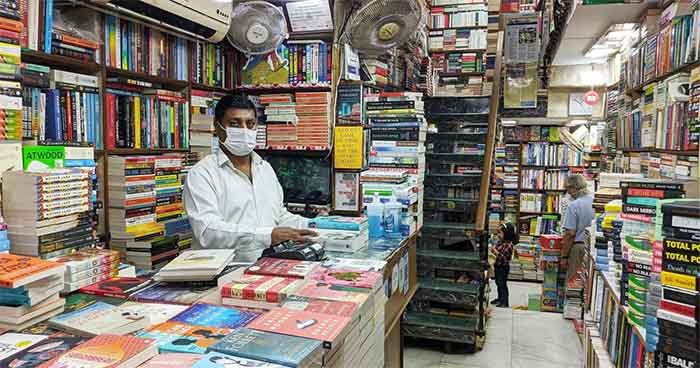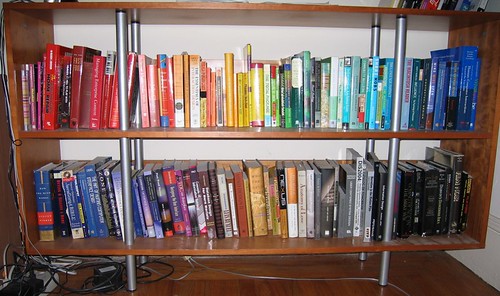
Come 23rd April and we have the special day for book lovers – World Book Day. The day was established by UNESCO in 1995 to globally celebrate books and reading. Today, we see that World Book Day is being observed in over 100 countries worldwide, including India, especially among the literary circles of the country. The day is celebrated annually on April 23rd, with a theme “Read Your Way,” which underscores the significance of personal choice and enjoyment in cultivating a passion for reading. It encourages both children and adults to discover books that resonate with them, irrespective of format or genre.
It is a momentous occasion that encourages people worldwide to celebrate the joys of reading, promote literacy, and appreciate the role books play in enriching our lives. In the vibrant cultural tapestry of India, World Book Day holds special significance, reflecting the country’s diverse literary heritage, its contemporary literary achievements, and the ongoing efforts to promote literacy across all demographics.
Historical Legacy of Literature in India
India boasts a rich literary tradition dating back thousands of years. From ancient scriptures like the Vedas and Upanishads to the epics like the Ramayana and Mahabharata, the country’s literary heritage is vast and multifaceted. Sanskrit literature, in particular, has contributed immensely to shaping the literary landscape of India.
The classical period saw the flourishing of Sanskrit literature, with luminaries like Kalidasa, Bhasa, and Valmiki creating enduring works. The Bhakti and Sufi movements in mediaeval India also enriched the literary sphere, producing spiritual poetry and devotional literature that continue to resonate with readers today.
Regional and Vernacular Literature
India’s linguistic diversity is reflected in its regional and vernacular literature, which spans across languages such as Tamil, Telugu, Bengali, Marathi, Urdu, Hindi, and many others. Each language has its unique literary traditions, showcasing a kaleidoscope of themes, narratives, and styles. Prominent figures like Rabindranath Tagore, Premchand, Bankim Chandra Chattopadhyay, and Subramania Bharati have left an indelible mark on Indian literature, addressing social issues, cultural ethos, and human emotions through their works. The stories and poems penned in these languages encapsulate the essence of Indian life, offering profound insights into its myriad aspects.
Contemporary Literary Landscape
In contemporary India, literature continues to thrive, with writers exploring diverse themes ranging from social justice and political upheavals to personal narratives and existential quests. Indian authors writing in English, such as Arundhati Roy, Vikram Seth, and Jhumpa Lahiri, have gained international acclaim, bringing Indian stories and perspectives to a global audience. The emergence of regional language writers like Perumal Murugan, Mahasweta Devi, and Shashi Deshpande has further enriched the literary scene, offering unique narratives rooted in regional cultures and traditions. The popularity of contemporary Indian literature is evidenced by the proliferation of literary festivals across the country, which serve as platforms for dialogue, debate, and celebration of literary achievements.
Promoting Literacy and Education
Despite its literary heritage, India faces significant challenges in terms of literacy and access to books, particularly in rural areas and marginalised communities. Initiatives like the National Book Trust (NBT) and Pratham Books work tirelessly to promote reading habits, distribute books, and foster a culture of literacy among children and adults alike.
Schools, colleges, and libraries play a pivotal role in nurturing young minds and fostering a love for reading. Book lovers like the Nagpur Book Club in central Indian and many similar online forums and platforms promote the idea of reading books among the communities where they dwell. Reading campaigns, book drives, and storytelling sessions are organised on World Book Day and throughout the year to encourage reading habits and instil a lifelong appreciation for books.
How should we Celebrate World Book Day in our Circles?
On World Book Day, we could witness a flurry of activities aimed at celebrating the written word. Bookstores and libraries should leverage this important day by hosting talk shows, book reading events, organising book fairs, literary events, and author interactions to engage readers of all ages. Educational institutions organise reading sessions, book discussions, and storytelling workshops to promote literacy and ignite a passion for books among students. Social media platforms buzz with book recommendations, literary quotes, and discussions on favourite authors and genres. Online book clubs and virtual events enable readers from diverse backgrounds to connect over their shared love for books.
Resolutions for this Day
Celebrating World Book Day can be a wonderful opportunity to make resolutions that promote reading habits and engage with books more actively. Here are some resolutions you can consider on World Book Day:
- Read Regularly: Set achievable reading goals to incorporate reading into your routine.
- Explore Different Genres: Diversify your reading to broaden your literary horizons.
- Support Local Authors: Discover and promote books by local authors.
- Visit Libraries and Bookstores: Engage with physical books to support local literary ecosystems.
- Join a Book Club: Connect with fellow readers for meaningful discussions.
- Share the Joy: Encourage others to read by sharing recommendations and writing reviews.
- Create a Reading Space: Designate a cozy corner for immersive reading experiences.
Conclusion
World Book Day in the Indian context is not just a celebration of literature but also a reaffirmation of the transformative power of books. It underscores the importance of reading in shaping minds, fostering empathy, and promoting lifelong learning. As India continues its journey of literary exploration, World Book Day serves as a poignant reminder of the enduring legacy of books and the profound impact they have on society. At the same time, we need to take care of making some strong resolutions on World Book Day and incorporating them into your daily life. You can cultivate a lifelong love for reading and contribute to fostering a culture of literacy and appreciation for books in your community.
Mohd Ziyauallah Khan, a Nagpur-based freelance content editor, writer, an activist and secretary of the Professional Solidarity Forum Nagpur Chapter. Leading a team of enthusiastic professionals, he is dedicated to shaping the new generation in their professional lives while uplifting the moral fabric of society.











































